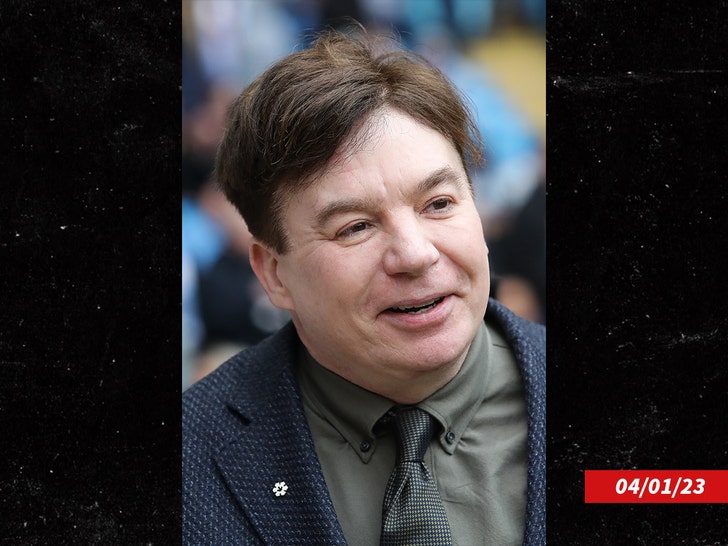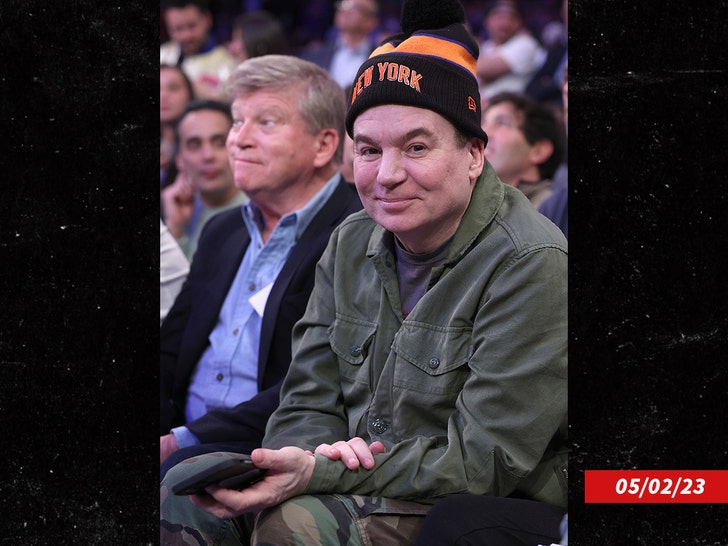Lifestyle
'Magical Overthinking' author says information overload can stoke irrational thoughts

Amanda Montell hosts the podcast Sounds Like a Cult. She’s also the author of Cultish: The Language of Fanaticism.
Kaitlyn Mikayla/Simon & Schuster
hide caption
toggle caption
Kaitlyn Mikayla/Simon & Schuster

Amanda Montell hosts the podcast Sounds Like a Cult. She’s also the author of Cultish: The Language of Fanaticism.
Kaitlyn Mikayla/Simon & Schuster
How is it that we are living in the information age — and yet life seems to make less sense than ever? That’s the question author and podcast host Amanda Montell set out to answer in her new book, The Age of Magical Overthinking.
Montell says that our brains are overloaded with a constant stream of information that stokes our innate tendency to believe conspiracy theories and mysticism.
“We grow up hearing certain legends and myths and lore repeated ad nauseum, and we perceive them as true,” she says. “It’s the reason why … I genuinely thought, until I was an adult, that it took seven years to digest gum.” (Despite what you may have heard, bubble gum typically digests the same way as food.)
Montell, who co-hosts the podcast Sounds Like A Cult, says this cognitive bias is what allows misinformation and disinformation to spread so easily, particularly online. It also helps explain our tendency to make assumptions about celebrities we admire.

“We see a pop star whose music we enjoy, and we assume that they must also be worldly, kind, nurturing,” Montell says. “Or we enjoy someone’s fashion sense and we jump to the conclusion that they’re gregarious or maybe they speak other languages — we jump to these conclusions for which there is little or no evidence.”
Montell says that in an age of overwhelming access to information, it’s important to step away from electronic devices. “We are meant for a physical world. That’s what our brains are wired for,” she says. “These devices are addictive, but I find that my nervous system really thanks me when I’m able to do that.”
Interview highlights
On why humans developed cognitive biases


Cognitive biases are these deep rooted mental magic tricks that we play on ourselves. … Cognitive biases developed to help us reconcile our limited time, our limited memory storage, our limited cognitive resources, and our distinct craving for events to feel meaningful during a time when most of the problems that we were contending with every single day were physical. They were less abstract, less complex, less disembodied. And that was true for most of human history. So we developed these shortcuts unconsciously to help us make sense of our environment enough to survive. But now survival is, for the most part, taken care of. At least we’re not being attacked by saber tooth tigers anymore in the way that we were when these biases developed. And yet we’re still relying on them to confront much more complex and cerebral concerns, and that clash is causing a great deal of existential pain. I really think that our innate mysticisms are clashing with this onslaught of information, mass loneliness and almost a capitalistic pressure to know everything under the sun. And this is all happening without our conscious awareness.
On the “halo effect,” in which we jump to conclusions that celebrities are perfect
Once, when [human beings] were living in smaller communities, the halo effect prompted us to make decisions, like seeing someone with large muscles or intact teeth and thinking, “Oh, that person must be a skilled hunter or a skilled fighter, because they’ve avoided disfigurement from battle. That would be a great person to align myself with for survival.” But we’re now mapping this halo effect onto modern para-social relationships involving celebrities, and that’s setting everyone up for psychological failure, because we’re uplifting these celebrities onto a pedestal so high up in the sky that we can’t perceive their humanity anymore. … So when they post something or behave in a way that contradicts the expectations that we’ve cultivated of them, we feel the need to dethrone them, to punish them.
On “thought terminating clichés” and the notion of manifestation
It describes a sort of stock expression that’s easily memorized, easily repeated, and aimed at shutting down independent thinking or questioning. … So a new age thought terminating cliché might sound like something like, “Well, that’s just a victim mindset.” Or “you need to sit with that.” Or “don’t let yourself be ruled by fear.” …
[Manifestation] is its own kind of conspiracy theory, which is an edgy point to make. … We tend to believe naturally, as humans, that big events or even big feelings must have had a big cause. It just makes proportional sense to us. … Where manifestation starts to get a little sketchy, a little grift, a little culty dare I say, is when public figures on TikTok, on Instagram projected the language of capitalism onto it. When you start to take an absolutist approach to this subject matter and make it an ideology, it gets a little sinister. Because then when you start to think about it more surgically, if the fact that you are now gainfully employed and have a romantic partner whereas before that was not the case, is because you manifested it, you created a vision board, you bathed your crystals, you know your mind was in the right place.
Well, the inverse of that is that if you’re sick, poor, unemployed, unlucky in love, well then it must be your fault. And in the post-pandemic era, during this time of incredible tumult, socio-politically, globally, we’re craving someone to tell us how to reclaim some agency. And so I have noticed a generation of grifting manifestation gurus on TikTok and Instagram sweep into the market and promise, “Actually, I have a bespoke proprietary manifestation technique, and if you’re seeing this on your free you page, then it was meant for you. All you have to do is sign up for my $30 a month course, and I will impart this manifestation wisdom onto you. It will change your life. And if it doesn’t, well, that’s your fault.”
On the power of nostalgia
During times of present pain, we tend to sort of bathe in a warm bath of positive past memories as a coping mechanism. Excess nostalgia is a bad thing. It’s what’s causing everyone from Disney adults to MAGA zealots to go blackout drunk on nostalgia and have these complete delusions of the past. That can be really dangerous. But as I continued talking to nostalgia scholars, I realized that what’s called personal nostalgia, or when we romanticize memories from our own life, that’s a really positive thing because it helps us generate hope for the future. It’s engaging us in imagination. The future is unpredictable. We don’t have any artifacts from [the future]. … We do have relics from the past, and that helps us. We cling to those things in order to imagine a future that could feel that good. At the same time, we’re experiencing a glut of this cognitive bias called declinism, which is our proclivity to think that life is just getting irreversibly worse and worse and worse. And it’s all downhill from there. And again, that’s something that we do naturally.
Sam Briger and Thea Chaloner produced and edited this interview for broadcast. Bridget Bentz, Molly Seavy-Nesper and Meghan Sullivan adapted it for the web.

Lifestyle
As National Poetry Month comes to a close, 2 new retrospectives to savor

W. W. Norton & Company, Alice James Books

W. W. Norton & Company, Alice James Books
With National Poetry Month comes spring flowers and some of the year’s biggest poetry publications. And as April wraps up, we wanted to bring you two of our favorites — retrospective collections from two of the best poets of the late 20th and early 21st centuries: Marie Howe and Jean Valentine.
Howe’s New and Selected Poems makes a concise case for Howe’s status as an essential poet. The New & Collected Poems of Jean Valentine gathers all of the beloved late poet’s work, a monument to a treasured career.
New and Selected Poems by Marie Howe
Marie Howe is writing some of the most devastating and devastatingly true poems of her career — and some of the best being written by anyone. Her subject matter, from a bird’s eye, is simply the big questions and their non-answers: What are we here for? What does it mean to do good? What have we done to the environment? What are the consequences and what do we who are here now owe to those who will follow us? And yet her tone and straightforward delivery make her poems as approachable as friends. Howe is the rare poet whose poems one wants to hug closely for company, companionship, and empathy; and yet they are works of literature of the highest order, layered, full of booby traps and shoots and ladders that suddenly transport one between the words. It’s tough love that these poems offer, but it’s undeniably love.
This first retrospective gathers a book’s worth of new poems along with ample selections from of Howe’s four previous collections, each of which was a landmark when it was published. Her nearest antecedent might be Elizabeth Bishop, who also didn’t write very much, or didn’t publish very much, but everything she wrote was good if not capitol-G-Great. Howe is best know for What the Living Do (1997), which remains one of the great books on youth and grief, regret, and moving forward if not moving on. It regards a world in which “anything I’ve ever tried to keep by force I lost.” Startling, almost koan-like statements like this erupt out of unassuming domestic scenes, making everyday life into high drama.
The typical speaker of a Howe poem is a woman who seems much like Marie Howe, even when she is speaking through the voice of the biblical Mary, as she does in Magdalene (2017): “I was driven toward desire by desire.” She is serious except when she’s funny, though she’s rarely laugh out loud funny — it’s more of a kind of internal laughter, either like blossoming light or paper rustling in one’s chest. She is consoling, except when she is taking herself and readers to task, bowing under the simple, Herculean responsibilities that come with living a life, being a parent. She’s tough, sometimes even stoic, except that in almost every poem there is a moment of surprise, a revelation, a piercing insight that injects a kind of pure ecstasy.
Some of the new poems are among the best Howe has written, making them among the best period. Set “In the middle of my life — just past the middle,” these poems grieve lost friends; reckon with the sudden adulthood of a daughter; lament the destruction of the environment; and take the moral measure of this very disturbing era. Each of these everyday dramas becomes an access point for the deepest kind of human reconciliation, where we must finally admit where language fails us. These poems also feature a recurring character, “our little dog Jack,” who, with all best intentions, becomes one of Howe’s most devastating metaphors. But all metaphors have their root in plain fact. As Howe writes in “Reincarnation,” one of her best poems, “Jack may be actually himself — a dog.”
Light Me Down: The New and Collected Poems of Jean Valentine
This is one of those monumental events in American poetry: the life’s work of a major poet gathered in one big book, an opportunity to revel in all that Jean Valentine accomplished in her long and prolific career. As a young poet, Valentine (1934-2020) won the Yale Series of Younger Poets prize in 1965, for her debut collection, Dream Barker. In 2004, she won the National Book Award for Door in the Mountain: New and Collected Poems 1965-2003. In between, and after, she was always well regarded by the mainstream poetry establishment, winning most of the prizes available to an American poet.
But Valentine’s real influence was as a friendly ambassador to and from the avant-garde. It’s hard to pin Valentine’s poems down: I wouldn’t call them experimental, but they are anything but straightforward in their slippages of thought and wide leaps of association. Fairly early in her career, Valentine begin working in a style that had her teasing the reader with images, gently suggesting the way the poem should go, until, perhaps, a thunderclap at the end disturbs the calm. She always knows where to end. Pick almost any poem and the last couple of lines will shock you with their unlikely inevitability.
Valentine writes about everything — love, death, sex, the roiling political situations of the last half-century — with simultaneous candor and mystery: “I have been so far, so deep, so cold, so much,” she says prophetically in an early poem. She asserts that poetry can be made almost entirely through suggestion, that the poet must trust the secret links between one word and another, and trust that the reader will be willing to travel with the poet along those underground currents. In a short poem, a haiku from 1992, “To the Memory of David Kalstone,” dedicated to the literary critic who died in 1986, Valentine offers as succinct a statement of her poetics as one could want: “Here’s the letter I wrote,/ and the ghost letter, underneath—/ that’s my life’s work.” Valentine’s poems draw our attention to the words beneath the words, what’s said between them, in all the white space surrounding the poems.
Elsewhere Valentine opts for simple observations, stirred by a bit of mystery, as in the brief elegy “Rodney Dying (3)”:
“I vacuumed your bedroom
one gray sock
got sucked up it was gone
sock you wore on your warm foot,
walked places in, turned,
walked back
too off your heavy shoes and socks
and swam”
There are no sudden bolts of profundity here, nothing, really, that you could call insight, at least not overtly. Instead, Valentine asks an object, the sock, to carry the grief. This is a technique poets call the “objective correlative” — it’s an image that stands in for an emotion or knot of emotions. That unassuming object, or really just the word for it — sock — becomes a vessel, a kind of canopic jar to contain grief, but also to let it rattle around a bit. The poem ends with what might be an allegory for death, but is also a celebration of Rodney’s vitality. The language is as plain as can be, and yet I exit the poem with uncertainty, equally hopeful and despairing. Valentine is an expert at tensing these sorts of contradictions against one another. The emotional climate in Valentine’s poems is ambivalent in the best way, lit by contradictory energies.
And while this book is a monumental celebration of an extraordinary legacy, it is also sad to hold: Valentine was in an inexhaustible and generous force in American poetry until so recently. It feels impossible to accept the fact that she is dead while reading poems that are so profoundly alive.
Craig Morgan Teicher is the author of several books, including The Trembling Answers, which won the 2018 Lenore Marshall Poetry Prize from the Academy of American Poets, and the essay collection We Begin in Gladness: How Poets Progress.
Lifestyle
Mike Myers Debuts White Hair in First Public Appearance in Over a Year

Mike Myers returned to the spotlight for a rare public appearance this weekend … but folks had to do a double take, ’cause nobody could recognize him with his new hair color.
The actor stepped out Saturday for the 49th AFI Life Achievement Award Gala in L.A. — where Nicole Kidman was being honored — which marked his first time at a public event in about a year.

Mike looked unrecognizable with short white hair — but was rocking it proudly as he spoke onstage at one point … and posing for tons of pics before heading inside, all smiles.
He was even taking photos with fans too … acting goofy and posing for a bunch of selfies.
Mike has always kept a relatively low profile … as he and his wife, Kelly Tisdale, are known for keeping their home life super private. So, seeing MM out and about like this is pretty remarkable — especially since he’s a silver fox now, and totally leaning into it.

The last few times Mike was out in public was in April and May of 2023 — in April of that year, his was quite a bit longer … and more importantly, it was the same color of brown we’ve seen him in for years now.

In May, the guy was at a basketball game — with pretty damn good seats, it seems — but there … he was wearing a beanie, covering up his ‘do. Since then, he’s been kinda MIA.
Anyway, it was clearly a big enough occasion to get Mike out of the house and into the public eye again — remember, this was all about Nicole … and anyone who’s anyone showed up to give her her flowers, including a ton of celebs.
Among the stars in attendance … Reese Witherspoon, Joey King, Michelle Pfeiffer, Jane Seymour, Miles Teller, Naomi Watts, Morgan Freeman and lots of others.
Mike certainly stood out though … and we gotta say, he’s looking real sharp these days!
Lifestyle
In 'Dead Boy Detectives,' two best mates reject their deadly fates : Pop Culture Happy Hour

-

 Kentucky1 week ago
Kentucky1 week agoKentucky first lady visits Fort Knox schools in honor of Month of the Military Child
-

 News1 week ago
News1 week agoIs this fictitious civil war closer to reality than we think? : Consider This from NPR
-

 World1 week ago
World1 week agoShipping firms plead for UN help amid escalating Middle East conflict
-

 Politics1 week ago
Politics1 week agoICE chief says this foreign adversary isn’t taking back its illegal immigrants
-

 Politics1 week ago
Politics1 week ago'Nothing more backwards' than US funding Ukraine border security but not our own, conservatives say
-

 News1 week ago
News1 week agoThe San Francisco Zoo will receive a pair of pandas from China
-

 World1 week ago
World1 week agoTwo Mexican mayoral contenders found dead on same day
-

 Politics1 week ago
Politics1 week agoRepublican aims to break decades long Senate election losing streak in this blue state















